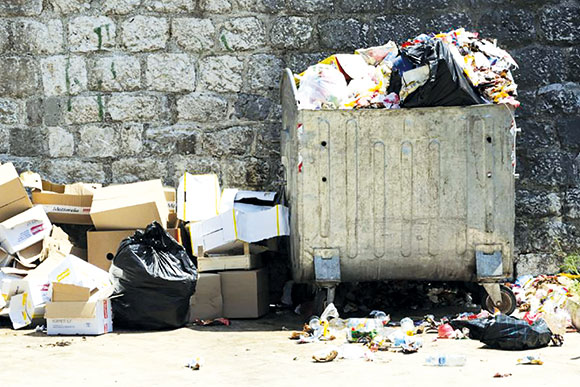
The City of Somerville Rodent Issues Special Committee continues its efforts to mitigate rodent infestation in the city.
By Katherine Davis
The Rodent Issues Special Committee held their regular meeting on Monday, September 30, to cover the ongoing issue of any city – rodents. While rodents, especially rats, are present in any city, they only continue to thrive because of human activities such as open top and easily accessible outdoor trash cans, yard debris, overgrown vegetation, and more. Taking a few extra steps can make the difference for you and your neighborhood.
The Committee covered multiple orders:
- That the Environmental Health manager prepare a written report for the next meeting of this Council’s Special Committee on Rodent Issues, on the number of Residential Rodent Control Assistance Program requests submitted from January 1, 2024 to date, including the average waiting time for inspections and bait station installation and a plan of action to expedite the process.
- That the Directors of Constituent Services, Inspectional Services and Health and Human Services jointly prepare a written report for the next meeting of this Council’s Special Committee on Rodent Issues, on the number of rodent complaints received from January 1, 2024 to date, including the information detailed within.
- That the City Solicitor review Ordinance 11-038 (Rodent Control) and provide opinions for the next meeting of this Council’s Special Committee on Rodent Issues on 1. Whether city inspectors may enter onto private property; 2. How much time must elapse subsequent to the issuance of a citation for the city to “cause the work to be performed and charge the owner of the property and place a lien against the property for expenses incurred”; and 3. The minimum amount of time that may be imposed pursuant to 11-038 (e).
- That the Director of Inspectional Services inspect the area at the intersection of Broadway and Glen Street for rodent activity.
- That the Environmental Health Coordinator discuss the current contract with the pest control company that administers the city’s rat abatement program.
The Environmental Health Coordinator, as well as the Environmental Health Manager, gave a compact presentation containing an overview of the data collected within the last 10 months regarding updates and current possible solutions to aid pest control within the city of Somerville. As of September 24, there have been 487 calls about rodent issues made to the 311 line. However, this number does not include those who failed to report, as well as the upcoming final months of this year.
At the moment, the data shows 240 fewer calls have been made than in 2023. According to the presentation, 264 properties in Somerville have been given two months of free rodent monitoring and control, with more treatment scheduled for the remainder of the year, along with the completion of 405 requests since January 1st. The average wait time for a response is about 2-3 weeks, but the committee emphasized that this is across the entire year, where it may take longer in the warmer months where rodents thrive the most, resulting in a longer waiting time as more calls come in. Furthermore, there have been 1,401 inspections with those properties, the installation of more than 525 Terrablox bait stations, the filling of rodent burrows, and carbon monoxide treatments.
Some updates provided to the committee were:
- The discussion of an ongoing study at the Somerville high school that began this past month. This controlled study is a shared grant with Cambridge and is looking at rodent fertility with the use of Bell IQ boxes and Evolve pellets, observing both burrowing characteristics and feeding activity.
- 2841 rodent violations were from residential trash, 708 were from vegetation & overgrowth neglect, 388 were from commercial trash, and 140 were from rodent and pest control. These include but are not limited to the previously reported 311 calls.
- The piloting of another alternative treatment, the A24 traps, has seen both positive and negative results. On one hand the traps have resulted in 8 kills in the last 2 months and automatically reset, so there is no need to refill the bait. On the other hand, the monitoring is done with Bluetooth and only allows one person to connect at a time, making it difficult to monitor cross-department, and one would have to dispose of dead rats by hand, meaning the need for regular checking of traps by the department across the city.
- While the committee and its members work hard to minimize the rodent issues within the city, it is also a responsibility as a community member to do one’s part and follow some of the suggested steps provided by the Rodent Control and Public Education department. Some of the simpler things one can integrate into their daily routine are:
- Regularly check trash cans for signs of rodent presence such as gnawing or droppings, and periodically clean trash cans to help discourage feeding.
- Compost properly, following the guidelines provided by the city on the City of Somerville website.
- Store boxes, equipment, and firewood about 18 inches off of the ground and away from walls to discourage nesting in the small spaces.
- Repair water leaks and dripping to prevent the formation of standing water.
The city is continuing to work on alleviating the major rodent infestations and issues, and encourages all community members to use the 311 line to report rodent sightings on private and public property. For more tips and guidelines, as well as educational resources, visit the Rodent Control and Public Education page on the City of Somerville website under the Board of Health.















Reader Comments